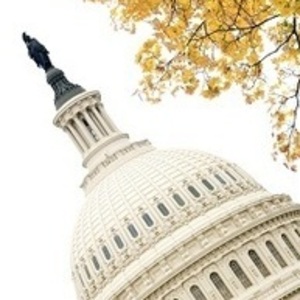Senate version of “big, beautiful bill” aims to extend, alter 45Z tax credit

June 17, 2025
BY Erin Voegele
The Senate Finance Committee on June 16 released its draft of the “big, beautiful bill.” The legislation extends the 45Z clean fuel production credit but proposes changes that would cut the value of the credit by 20% for fuels made from imported feedstocks and alter the value of the credit for sustainable aviation fuel (SAF).
The existing 45Z tax credit, established by the Inflation Reduction Act of 2022, provides a tax credit for the production and sale of low-emission transformation fuels. The credit starts at 20 cents per gallon for non-aviation fuels and 35 cents per gallon for sustainable aviation fuel (SAF). For facilities that satisfy the prevailing wage and apprenticeship requirements, the value of the tax credit is up to $1 per gallon for non-aviation fuels and $1.75 per gallon for SAF. The tax credit is currently in place for 2025, 2026 and 2027.
Some 45Z provisions included in the Senate’s reconciliation bill are the same as those included in the House version of the bill, which narrowly passed by a 215 to 214 vote on May 22. Other 45Z provisions differ significantly.
Advertisement
Advertisement
Both version of the bill aim to extend the 45Z credit through the end if 2031; exclude indirect land use change (ILUC) from being used to calculate the lifecycle greenhouse gas (GHG) emissions of eligible fuel; direct the U.S. Treasury Department to establish distinct emissions rates for specific manure feedstocks, including dairy manure, swine manure and poultry manure; and restrict access to the credit for certain prohibited foreign entities.
Both bills also place limits on the use of imported feedstock, albeit in different ways. While the House version of the bill limited availability of the 45Z credit to fuels produced from feedstocks produced or grown in the U.S., Mexico or Canada, the Senate bill takes a different approach. Under the Senate bill, fuel producers can utilize feedstock produced anywhere, but the value of the 45Z credit is reduced by 20% for fuel produced from feedstocks produced or grown outside the U.S., effective Jan. 1, 2026.
Notably, the Senate bill also eliminates the “special rate” of the credit currently available for SAF. The change would essentially cap the value of the credit at $1 per gallon for all eligible fuels, including SAF. Currently, SAF is eligible for a credit of up to $1.75 per gallon.
Advertisement
Advertisement
The Senate bill also includes language that prohibits the use of negative emissions rates by specifying that the emission rate for eligible transportation fuel under 45Z may not be less than zero.
Both versions of the bill leave the 45Q credit for carbon sequestration largely intact, but repeal various other bioenergy-related tax credits, including the alternative fuel vehicle refueling property credit, which supports retail availability of E85, B20, and renewable natural gas (RNG); the clean hydrogen production tax credit; and the energy efficient home improvement credit, which, in part, supports the installation of residential wood heating appliances. Both bills also aim to phase out the production tax credit (PTC) and investment tax credit (ITC) for clean electricity.
The Senate has not yet scheduled a vote on its version of the bill, and it is possible the bill could be altered before a vote takes place. Once the Senate is able to pass its version of the bill, it is likely that any differences between the two versions will be resolved via conference committee. Both the Senate and House need to pass an identical version of the bill before the legislation can be delivered to President Donald Trump for his consideration.
A full copy of the Senate bill is available on the Senate Committee on Finance website.
Related Stories
The U.S EPA on July 17 released data showing more than 1.9 billion RINs were generated under the RFS during June, down 11% when compared to the same month of last year. Total RIN generation for the first half of 2025 reached 11.17 billion.
The U.S. EPA on July 17 published updated small refinery exemption (SRE) data, reporting that six new SRE petitions have been filed under the RFS during the past month. A total of 195 SRE petitions are now pending.
Avia Solutions Group, the world's largest ACMI (aircraft, crew, maintenance, and insurance) provider, has partnered with DHL Express to reduce greenhouse gas emissions from its international shipments using SAF.
Bangkok Airways Public Company Limited has officially announced the adoption of sustainable aviation fuel (SAF) on its commercial flights, reinforcing Thailand’s green aviation industry. The initiative took effect starting July 1, 2025.
Avalon Energy Group LLC and Sulzer Chemtech have signed a strategic alliance and partnership agreement to scale up the production of SAF. Under the agreement, Avalon has selected BioFlux technology for its portfolio of SAF projects.
Upcoming Events










